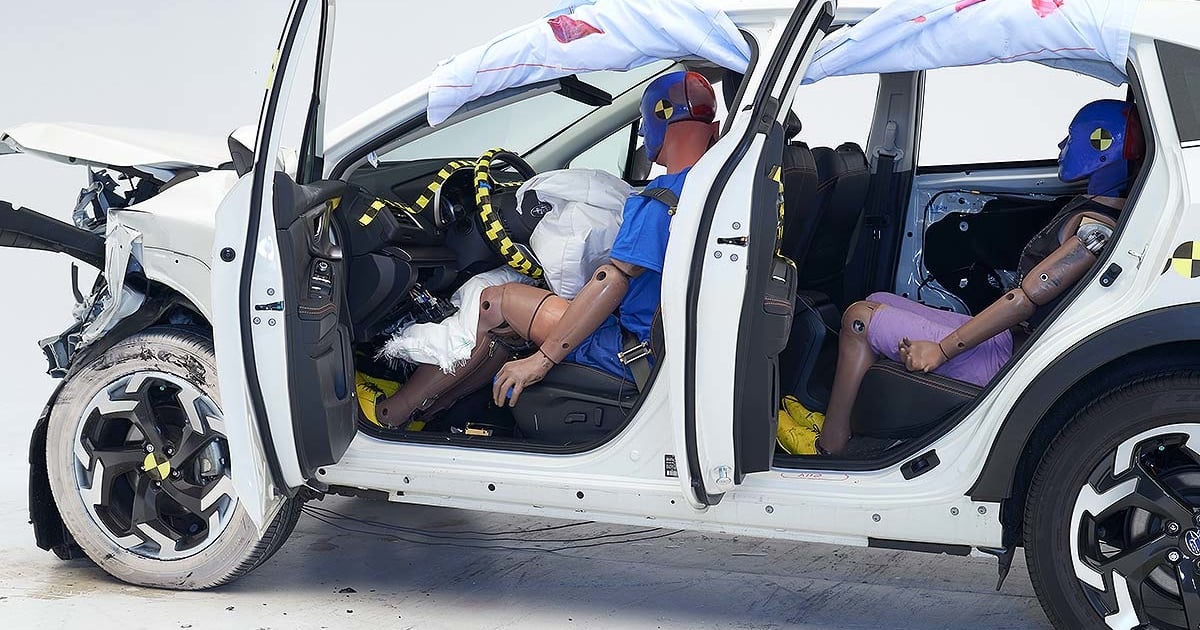
Rear-seat passengers are not well protected by small cars’ safety systems, new moderate overlap tests by the Insurance Institute for Highway Safety found.
The IIHS rated the Honda Civic and Toyota Corolla acceptable. The Kia Forte, Nissan Sentra and Subaru Crosstrek earned poor ratings.
The IIHS put the five popular small car models through a crash test and rated the vehicles on how well the vehicle’s structure held up, injury measures recorded by two dummies inside the vehicles and how well the restraints controlled the movement of those dummies.
The test propelled vehicles down a 600-foot runway and crashed them into a barrier at 40 mph with 40 percent impact to the front of the vehicle. Driver and rear-seat passenger dummies and cameras in the vehicles helped measure the success of the vehicles’ safety systems.
Last year, only 3 of 15 small crossovers earned a good or acceptable rating on the same test. The IIHS plans to test small pickups, midsize cars and minivans next.
Each small car scored well on driver protection, although measurements from the dummy in the Sentra indicated a slightly higher risk of head or neck injuries.
The dummy, however, slipped under the seat belt in all five vehicles. Shifting of the seat belt from its proper position increases the risk of internal injuries. In the Forte, Sentra and Crosstrek, measurements from the rear-seat dummies also showed a moderate or high risk of head, neck or chest injuries.
Front-seat restraint technology has become very effective, IIHS President David Harkey said in a video, but rear-seat technology has not progressed as well.
“We have not fully integrated those same technologies into the rear sear and it’s time to do so to make sure we are protecting all occupants in the vehicle,” Harkey said. Specifically, the IIHS recommends automakers add crash tensioners and force limiters to rear-seat restraint systems.
The rear seat is still the safest place for children, according to the IIHS.

